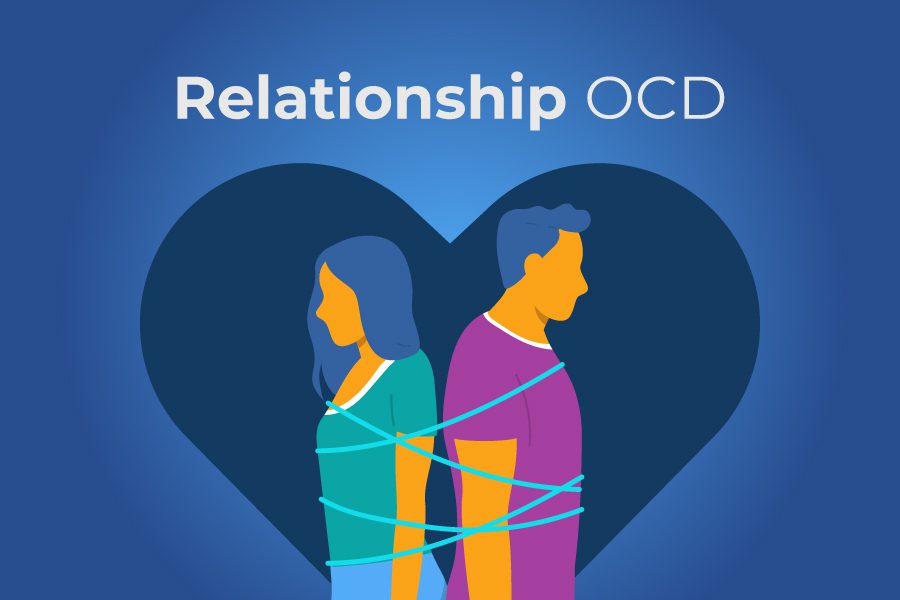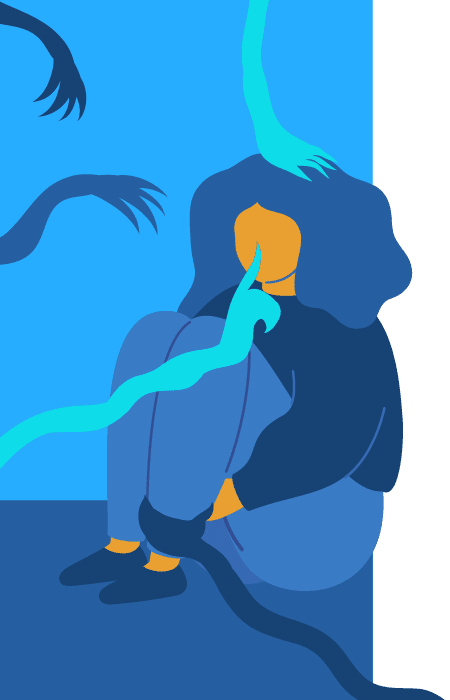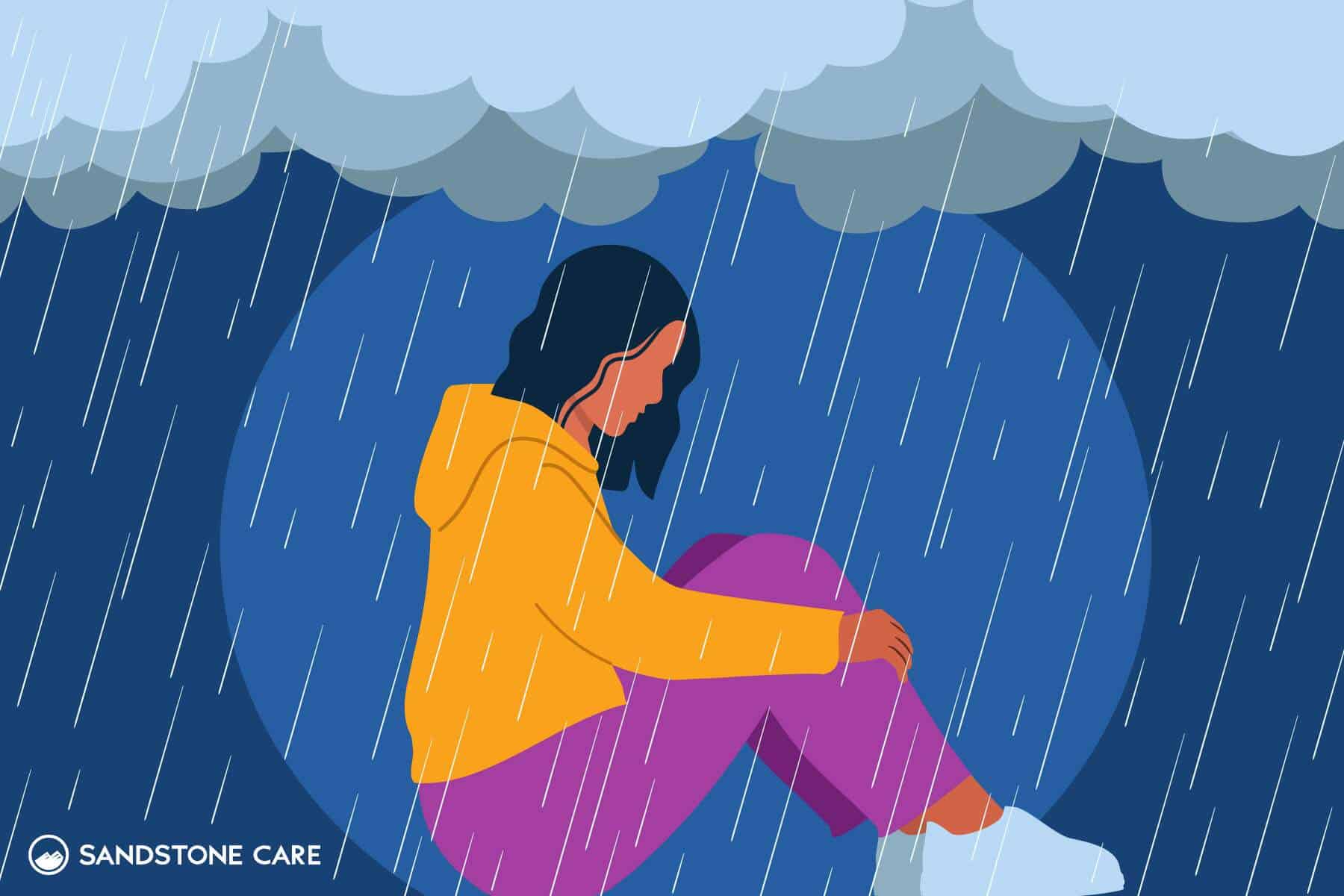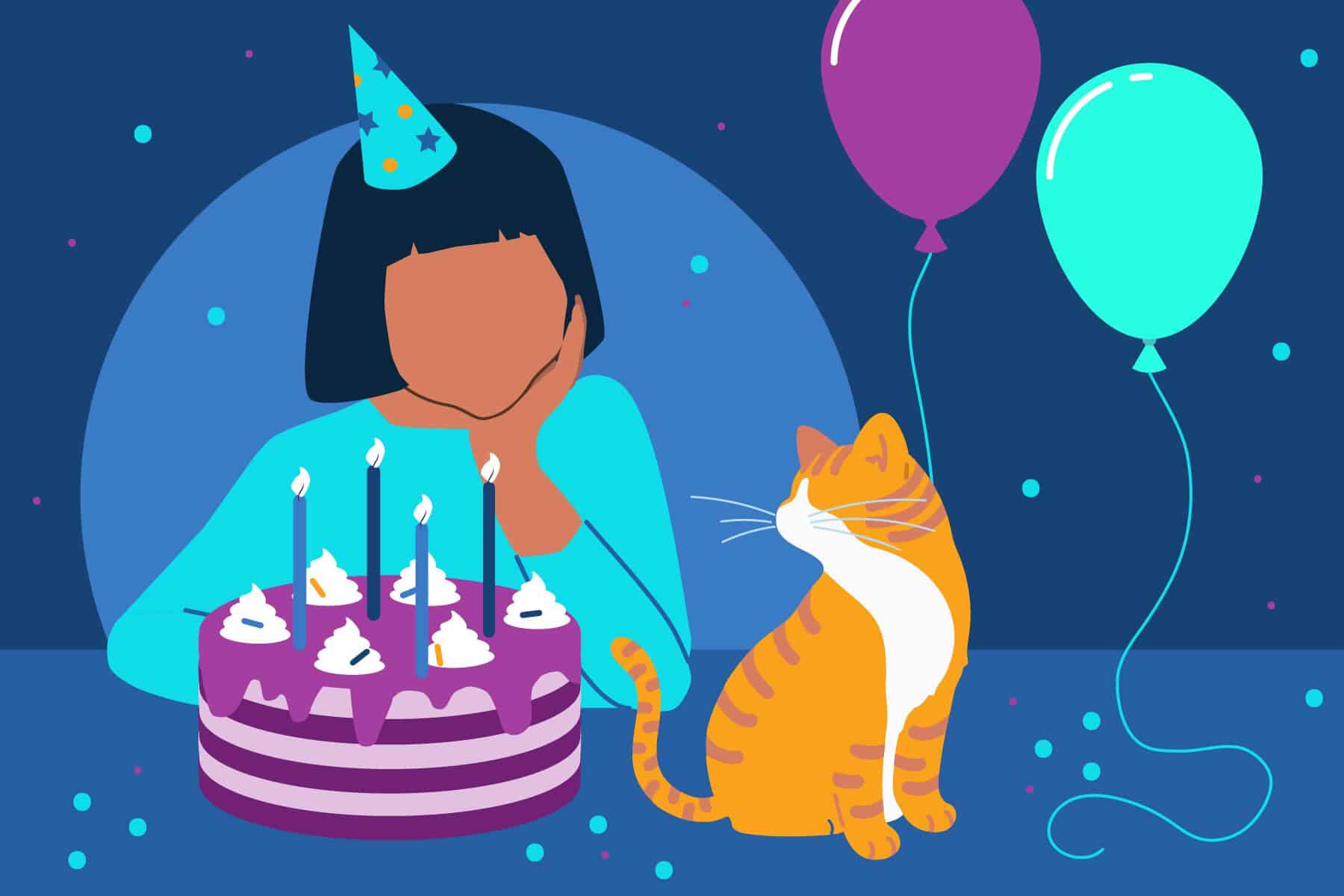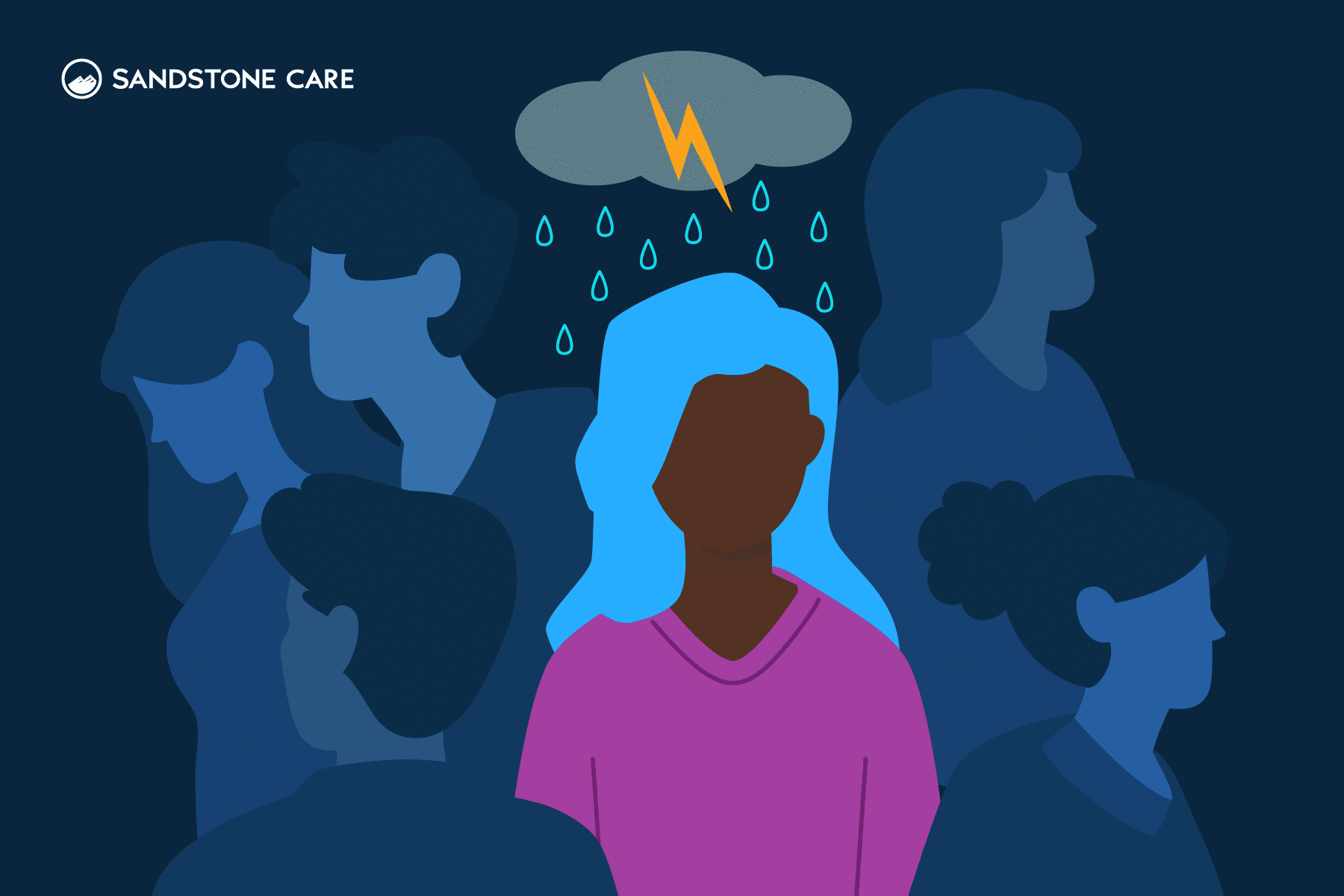OCD and Relationships
How Can OCD Affect Relationships?
OCD can put a lot of pressure on relationships by causing constant worry, overthinking, and a need for reassurance, which can be exhausting for both partners.
Obsessive-compulsive disorder (OCD) can affect many types of relationships, like friendships, family dynamics, and even work relationships.
It involves intrusive thoughts (obsessions) and repetitive behaviors or mental rituals (compulsions) that someone feels they have to do to ease anxiety.
These patterns can make communication harder and cause stress on both sides.
For example, someone with OCD might constantly worry that they’ll accidentally hurt their partner.
To ease that anxiety, they might repeatedly check things, like making sure the door is locked over and over, or ask their partner, “Are you sure you’re okay?” even though nothing’s wrong.
The fear keeps coming back because the reassurance or the action doesn’t actually address the root of the obsession.
The person’s brain continues to fixate on the “what if” scenario, making them feel like they need to check again or ask again, even though they know deep down it’s irrational.
A lot of things can affect how the relationship is affect by an OCD diagnosis: how serious the person’s mental health struggles are, what types of OCD they have, and whether they’re currently getting treatment.
When partner-focused forms of OCD are left untreated, it can damage self-esteem and can make it especially difficult to form and hold on to healthy relationships.
If you or a loved one are struggling within your relationships due to OCD or any related disorder, our team at Sandstone Care can help. Contact us to learn about the many different treatment options that are available.
Is Relationship OCD Real?
Yes, Relationship OCD (ROCD) is a real form of obsessive-compulsive disorder that describes a pattern where obsessive doubts specifically target romantic relationships.
In ROCD, individuals experience intrusive thoughts (obsessions) about their relationship, such as questioning whether they truly love their partner or if the relationship is the right one.
These thoughts often lead to compulsive behaviors, in an attempt to reduce feelings of anxiety. These actions can include seeking constant reassurance, overanalyzing interactions, or comparing their partner to others
Someone with relationship obsessive-compulsive disorder may struggle with intrusive thoughts or obsessive thoughts about their relationship and their feelings about their romantic partner.
They may also experience compulsive behaviors that are related to their intimate relationships and persistent fears about whether or not their relationship will work out.
Some of the obsessive questions they may be constantly asking themselves could be things like: “Is my partner going to break up with me?” or “Am I really in love with my partner?”
They may also find themselves comparing their relationship to other people’s relationships.
For example, they might ask themselves questions like, “Is our relationship as strong as theirs?” or “Are we as good of a couple as they are?”.
It can become emotionally tiring being in a relationship with someone who has ROCD because the person may continuously seek validation from their partner, no matter how often they are comforted or reassured.
A person with ROCD may require their partner to answer the same questions over and over again to soothe their insecurities.
ROCD can cause communication conflicts because the constant asking of relationship-centered questions can make partners feel like they aren’t believed, trusted, or listened to.
As a result, it can make it difficult for either person to enjoy being in the relationship.
How Do I Know If I Have ROCD?
If you experience consistent intrusive thoughts about your relationship, find yourself constantly worrying or overanalyzing your relationship, and need to seek reassurance from your partner constantly, you could be struggling with ROCD.
Do you often question whether your partner is the “right” one?
Maybe you often worry if your partner truly cares for you. You may also find yourself constantly overanalyzing everything your partner says or does.
It is normal to experience relationship concerns from time to time.
However, when these concerns take over your life and lead to compulsive, unhealthy behaviors, then you may need to seek the help of a mental health professional.
What Is an Example of ROCD?
One example of ROCD is feeling compelled to seek reassurance from your partner about your relationship on a regular basis.
Sometimes, ROCD shows up as constantly doubting your attraction to your partner. A person might obsess over thoughts like, “What if I’m not attracted to them enough?” even though they were before.
They might panic if they notice someone else is attractive and think, “Does this mean I don’t really love my partner?” Others fixate on personality traits, worrying things like, “What if they’re not smart or funny enough?” and start second-guessing the whole relationship.
Intrusive thoughts can even pop up during intimate moments, like suddenly wondering, “Is this the right person for me?” which can lead to guilt, anxiety, or pulling away emotionally.
ROCD can also show up in nonromantic relationships. For example, someone might obsess over whether they’re a “good enough” friend or fear they secretly dislike someone they care about.
They might keep checking their feelings, replaying interactions, or even avoid the person entirely to calm the fear that something’s wrong with the friendship.
Relationship OCD Symptoms
What Are Relationship OCD Symptoms?
Relationship OCD symptoms include intrusive and unwanted thoughts, consistent relationship doubts, and compulsive behaviors focused on social connections.
Some examples of obsessive relationship OCD thoughts you may find yourself asking yourself include, “What if my partner doesn’t really love me?” or “What if my partner is not the person I should be with?”
These obsessive thoughts may also involve relationship-related concerns about the future, your compatibility with your partner, or constantly focusing on your partner’s perceived flaws or shortcomings.
You may also find yourself frequently worrying about your partner falling out of love with you or being unfaithful, even if they’ve given you no rational reason to worry about these things.
An example of compulsive behavior that could be a symptom of ROCD includes frequently comparing your relationship to others you may see on social media.
This could also include spending an excessive amount of time overanalyzing your partner’s words or actions.
You may frequently find yourself stuck in a state of anxiety or guilt about your relationship. This can make it difficult for you to enjoy being in the relationship altogether.
What Is the Relationship OCD Cycle?
The relationship OCD cycle often begins with a trigger and is followed by intrusive thoughts, anxiety, and compulsive behaviors.
This can be followed by a sense of temporary relief, only for a new trigger to cause the cycle to start up and continue again.
You may experience this cycle over and over again, sometimes new maladaptive beliefs can jump in and make it even more stressful.
The best way to interrupt that momentum is to seek relationship OCD treatment and work with an OCD specialist.
How Do You Break the ROCD Cycle?
You can break the ROCD cycle by acknowledging the issue, seeking mental health assistance, practicing mindfulness, and going to therapy on a regular basis.
You can also take part in exposure and response prevention. This is when you face your ROCD triggers gradually over time and work towards overcoming them.
For example, you could ask yourself the question, what if my partner is not actually my true love?
You can learn to acknowledge that even if your fears become reality, you can still overcome them, and you’ll be OK.
Once you’ve reconciled with this, your mental illness will not have the same control over your life.
What Are Compulsions in Relationship OCD?
Compulsions in those who struggle with OCD are repeated behaviors that are done in response to intrusive thoughts about their relationship or their romantic partner.
Some common compulsions that those with relationship OCD may experience include constantly asking reassurance-seeking questions to their partner or their friends and family.
For example, this may include questions like “Do you think we are a good match?” or “Do you think they really love me?”.
No matter how many times they ask these questions, they may continue ruminating on them.
What Are Examples of Relationship OCD Compulsions?
Other examples of relationship OCD compulsions may include avoidance behaviors. This involves avoiding any activities or conversations that may trigger feelings of doubt within the relationship.
This may also involve the person constantly comparing their current relationship to past relationships they may have had.
They may also compare their current relationship to other people’s relationships, even those whom they may not know, such as people on social media.
What Is ROCD Comparisons?
ROCD comparisons involve constantly comparing your partner to other people or your current relationship to your past relationship and holding your partner to unrealistic standards.
A person with ROCD may have an unrealistic idea of what love is supposed to look like based on what they’ve seen in movies or on social media.
As a result, if they believe that their current relationship doesn’t look exactly like that, then there must be something wrong with it.
They may find themselves thinking things like, “Other people seem to be so much happier in their relationships than we are,” or “Shouldn’t I be feeling more excited/in love with my partner at this stage of the relationship?”.
Agonizing over these questions can cause the person who is struggling with ROCD significant distress.
It can also cause the person they are dating to feel as if they don’t have confidence in them or in their relationship.
This can make it difficult for someone with untreated ROCD to form and hold on to healthy romantic relationships.
What Are Unrealistic Expectations in ROCD?
Unrealistic expectations in ROCD may include idealized ideas about love, expecting perfection from a romantic partner, and expecting that a relationship will be positive, peaceful, and without conflict all of the time.
No relationship is perfect, and nobody will feel 100% in love and happy with their partner 24/7.
This is because emotions fluctuate, and conflicts are bound to show up from time to time. However, this doesn’t mean that two people can’t enjoy a long and healthy relationship.
Maintaining a healthy relationship takes effort and commitment from both sides. Even the best and strongest relationships also require compromise and communication to work.
Causes of Relationship OCD
What Causes Relationship OCD?
There are a lot of psychological and environmental factors that may play a role in why someone would develop relationship OCD.
The specific cause of relationship OCD can be different from person to person and may be hard to identify. For some people, it can be tied to genetic factors, such as a family history of mental health issues like anxiety disorders or bipolar.
For others, it could be tied to certain imbalances within their brain chemistry that are completely out of their control.
In many cases, certain psychological factors, such as perfectionism or low self-esteem, may cause someone to be more likely to develop ROCD.
Someone who has trouble dealing with uncertainty or who struggles with certain attachment disorders may also be more susceptible to ROCD.
Other factors like trauma, negative or toxic past relationships, and stressful life events can also all contribute to ROCD.
Is Relationship OCD Caused by Trauma?
For some people, yes, relationship OCD can be caused by trauma such as abandonment, betrayal, or abuse.
This doesn’t necessarily have to be trauma that is related to a past romantic relationship. It can be trauma dating back to when the person was just a child.
Does ROCD Come From Previous Relationships?
ROCD is usually based upon many different factors but can be influenced by a person’s past relationship experiences.
For example, if someone has a particularly negative past experience with a relationship, it can influence their future relationships and how they perceive relationships in general.
What Are Core Fears in ROCD?
Core fears in ROCD can be different from person to person but often involve obsessive worries that a relationship won’t work out.
This can also involve worries that someone’s partner will break up with them or fall out of love with them.
ROCD vs Wrong Relationship
Is It ROCD or the Wrong Relationship?
It can be hard to differentiate between whether you’re experiencing ROCD or if you’re experiencing doubts about your relationship because you’re genuinely not in the right relationship.
Working with a therapist can be a good way to determine if the fears you’re experiencing are normal or if they are obsessive and irrational.
They can also help you to reflect on your past relationships and determine if they could be influencing the way you think about love today.
Am I Falling Out of Love, or Is It ROCD?
Only you can know whether you’re falling out of love with your partner or if you’re experiencing ROCD.
However, there are some symptoms of ROCD to look out for that may help you determine if these concerns are a result of a mental illness.
This includes persistent intrusive thoughts about your relationship, compulsive behaviors, and unrealistic expectations for your relationship.
It is also important to consider whether there are any actual concrete issues within the relationship or if these concerns could be coming out of nowhere.
How To Love Someone With Relationship OCD?
It takes patience, understanding, and a willingness to support someone with relationship OCD to make the relationship work.
Learning about what this disorder actually is can help increase your understanding of what your partner is experiencing and why.
How to Tell Partner You Have ROCD?
If you’re going into a new relationship and have ROCD, it is important to be as open and honest with them as possible from the very beginning.
They should know what to expect and how to best support you within the relationship in order to make things work.
Relationship OCD Therapy
Can You Get Rid of Relationship OCD?
You can treat the symptoms of relationship OCD by seeking treatment from a therapist who specializes in this type of disorder.
How to Deal With Relationship OCD?
Going to therapy regularly can help you to manage your symptoms of relationship OCD.
Couples therapy, in particular, maybe a good option to consider if you or your partner struggle with relationship OCD.
What Is Self-Compassion in Relationship OCD?
Self-compassion involves treating yourself with kindness, patience, and understanding as you navigate the intrusive thoughts and compulsive behaviors that you may experience as a result of relationship OCD.
This can help to reduce guilt and shame and build more emotional resilience.
What Is The Best Therapy for ROCD?
The best therapy for treating ROCD is often considered cognitive behavioral therapy (CBT).
This can help the person to identify negative thought patterns and behaviors and work towards changing them. Exposure and response prevention are also good treatments for ROCD.


